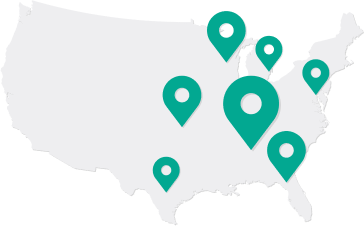As healthcare providers, we’re focused on providing the best care for the people we serve, ensuring a positive experience and striving to improve outcomes at a lower cost in this time of dramatic transformation in healthcare. Unfortunately, the biggest obstacle that we face providing high quality care at a lower cost is the rising cost of prescription drugs. For many people, high drug prices force difficult decisions between adherence to medications and paying for other necessities, like housing or food.
Fortunately, a bipartisan program created in 1992 – the 340B Drug Pricing Program – helps with the strain created from rising drug prices for those most in need. Under the program, drug companies provide discounts on outpatient drugs purchased by eligible healthcare organizations that treat many uninsured, vulnerable patients. These savings are reinvested back into those we serve and passed on to those patients in the form of free or reduced-cost medication and community- and patient-tailored services and programs. Our 340B savings fund programs to address a wide variety of healthcare conditions among our most vulnerable populations, including diabetes, cancer and behavioral health conditions. What’s more, these drug savings support the safety net without being funded by even a dollar of taxpayer money.
The 340B program was created to meet a congressional objective to “stretch scarce federal resources as far as possible, reaching more eligible patients and providing more comprehensive services.” It is a vital tool to provide care to those in need by mitigating the immediate and long-term impacts of high and rising drug prices and helps us carry out our Mission of providing compassionate, personalized care to all, with special attention to those most vulnerable.
While the 340B program has been shown to benefit patients, drug makers are actively restricting access to 340B pricing which is scaling back the program, leaving our most vulnerable citizens with less access to the medications and quality healthcare they desperately need. To meet the needs of the community and transform healthcare, with drug prices rising rapidly, programs like 340B must exist.
At Ascension, 54 of our hospitals participate in the 340B program in fiscal year 2023. Of these, 16 are critical access hospitals (CAHs), 28 are disproportionate share (DSH) hospitals and the remaining fall into a variety of other categories, including sole community hospitals, children’s hospitals and rural referral centers.
There are many examples throughout Ascension of how the reduced drug costs resulting from the 340B program enable us to stretch our resources to expand services for those who are poor and vulnerable. Even including discounts received by participation in the 340B program, Ascension still spends $1.7 billion annually on pharmaceuticals.
While the discounts are small relative to overall drug spending, they make a big difference in helping to enhance services for those who need help the most. The 340B program enables safety net providers not only to mitigate high and rising drug prices, but to be good stewards of finite patient, program and provider resources with a goal to improve the health of those we are privileged to serve.
In support of our Mission, Vision and Values, Ascension has committed to the American Hospital Association’s Commitment to Good Stewardship Principles. We strongly believe in the value of transparency and rigorous internal oversight to ensure that the program continues to meet the congressional objective.
Ascension 340B Program Guiding Principles
Building a comprehensive 340B program ensures that Ascension meets its promise to leave no patient behind. This is accomplished by focusing on Ascension’s Four Pillars of the 340B program:
